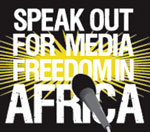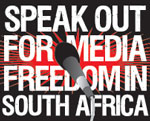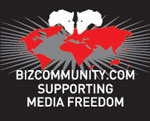As governments across the African continent come under increasing pressure from critical media, 'vulture' ruling parties believe the only way to deal with this 'surrogate opposition' is to regulate it through statutory mechanisms that will eventually dent its wayward reporting. But some African voices of reason, such as Zambia's Fred M'membe, argue that the restriction of good media never produces good media.
"The solution doesn't lie in the regulatory media system but lies elsewhere, and where liberties are concerned, if they are abused the best way to deal with them is to increase them and not compromise them," The Post editor-in-chief said last week in Johannesburg.
"People who are restricted are not always efficient, orderly and creative. Throughout the world, the best media is the media that operates at the highest level of liberty," M'membe said.
"Huge difference"
"Governments want media councils, and their main argument is that doctors, lawyers and engineers are self-regulated through an act of parliament. However, what they are forgetting is that there is a huge difference between journalism practice and the law profession, for instance."
Many analysts see Africa as the most corrupt place in the world, and a continent where heads of state, transformed into dictators, thieves and warmongers, stay in power as long as they want and crack down on journalists who dare criticise their policies.
Not a single African country has made it to the last five years' top 20 of the Worldwide Press Freedom Index compiled by Paris-based Reporters Sans Frontieres. South Africa, Namibia and Tanzania are believed to be the only countries in the SADC region where there is some form of media freedom.
Critics describe Angola's Jose Eduardo dos Santos, DRC's Joseph Kabila Kabange, Zimbabwe's Robert Mugabe and Swaziland King Mswati III as the region's biggest media predators.
M'membe said: "When you look at countries that tend to regulate the media, you will find out that there is a lot of corruption and excessive abuse of power. Abuse of power is no longer an offence in Zambia. A politician can only be arrested if he or she commits theft, which is difficult to prove."
"Assess honesty through what is published"
He pointed out that people assess politicians' honesty through what is published or broadcast in the media, adding that where there is power, there is a lot of contestation. He urged those who are in power to always be careful and exercise that power with self-limitations and modesty.
He said: "The debate today is: what options exist under self-regulation and how best to exploit its possibilities in each country. We have to consider the following points: the practicality of self-regulatory measures, is it cost-effective and can it improve journalism standards?"
M'membe is an award-winning journalist who exposed countless cases of Zambian government corruption and abuses of power despite numerous arrests, threats, imprisonment and harassment. His awards include the International Press Freedom Award from the Committee to Protect Journalists and the World Press Review International Editor of the Year, both awarded in 1995, as well as the 2000 International Press Institute World Press Freedom Heroes, among others.
Delegates from 21 African countries attended the Regulations and Rights media conference at Wits University in Johannesburg.
See tweets from and about the conference through the Bizcommunity
#zamediafreedom Twitterfall or via Twitter Search (
#AfricaMedia). For the "Wits Declaration on Media Freedom and Responsibilities" and presentations, references, audio, photographs and other news articles from the conference, go to
Wits Journalism.
Last updated at 11.04 on 16 March 2011.








































